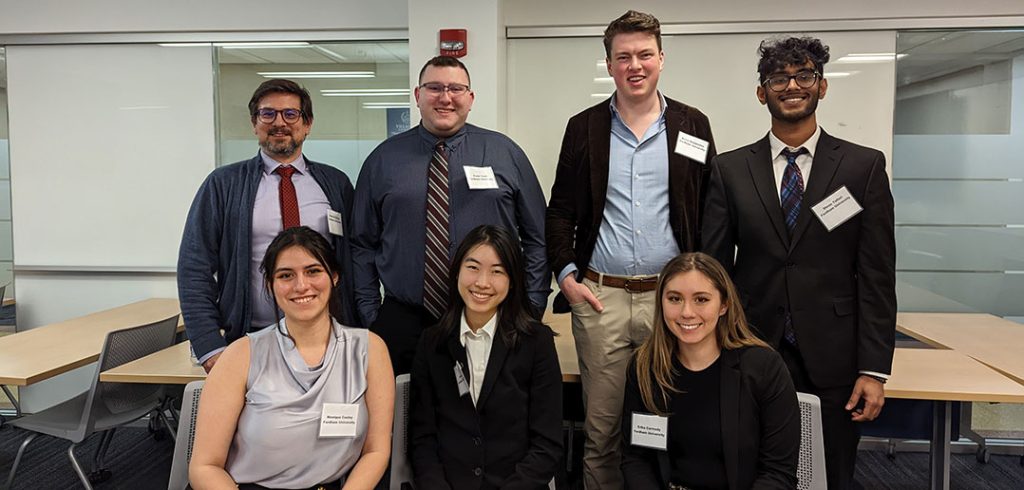This year’s team features Fordham College at Rose Hill juniors Erika Carmody and Frank Tarul, Fordham College at Rose Hill seniors Kerry Soropoulos and Shree Talluri, and Fordham College at Lincoln Center juniors Monique Cauley and Yeenon Yu.
Because they won all four rounds of the competition on Dec. 3, they have been invited to join the top 36 teams in the country at the APPE Intercollegiate Ethics Bowl National Championships, which will take place in March in Portland, Oregon.
They’re the first Fordham team to do so, and Steven Swartzer, Ph.D., associate director for academic programs and strategic initiatives at Fordham’s Center for Ethics Education, credited the work the students had done in Ethics in Action, a class he teaches that was created last year. The students were also singularly focused on parsing the possible scenarios that would be presented to them by a panel of three judges.
“Not only did we have our three-hour discussions in class, but I know that especially in the weeks leading up to the competition, they were having team meetings outside of those as well,” he said.
“They were just a dedicated group of students who were really engaged and thoughtful, and everything just clicked at the right time.”
Although the students are given 15 cases to study when the semester begins, only eight are presented to them to discuss at the competition. This year’s cases included ones examining whether the government or oil companies should be held responsible for monitoring unused wells, what age young adults should be to make medical decisions without their parents’ consent, and whether the pursuit of knowledge for knowledge’s sake is permissible when it might cause harm to animals.
Swartzer said that although the format of the ethics bowl is similar to debate, in that one team makes its case and the other team comments on that team’s analysis, the goal is actually to work together to address an issue, not just poke holes in the other team’s opinion. To do that, they need to show an empathetic understanding of other perspectives.
“They really are encouraged in their presentations and their analysis to explain why somebody might come to a different conclusion, and then engage with that alternative understanding, to try to get those people on board, or to show why those alternatives don’t ultimately work,” he said.
“Ultimately, they’re not just supposed to do a caricature of those opposing views, or create a straw man, but get at why someone who is reasonable and thoughtful might come to a different opinion about this, and then share how we can address those different opinions.”

